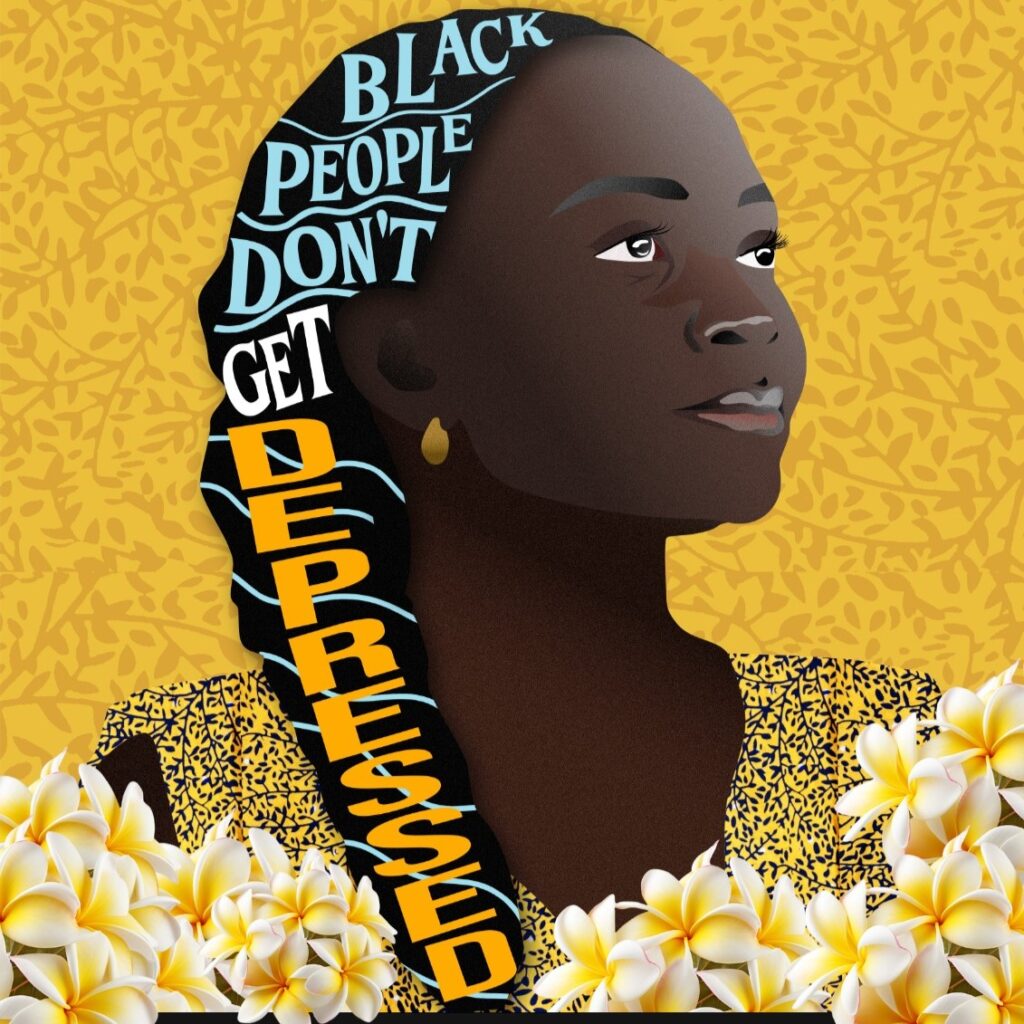UNPACKING MENTAL HEALTH STIGMA IN BLACK COMMUNITIES
Sara Chitambo-Hatira is a filmmaker intent on telling timely stories that matter. Her short documentary films, Climate Theatre, tackles Climate Change while, Reflecting Her, deals with issues surrounding African women’s reproductive health and rights. Her debut feature-length documentary film, Black People Don’t Get Depressed, addresses mental health stigma in an attempt to expand thediscourse on the topic in African families and communities in particular.
Key Characters
Sara, a Zambian filmmaker based in Johannesburg, starts off the documentary by recounting a smash- and-grab incident. Traumatized by the harrowing event, her mental health declined. On seeking psychiatric assistance, she was diagnosed with Post Traumatic Stress Disorder (PTSD) and clinical depression.
In the monologue, she states that she made the film to get people to talk about their own battles withmental health, the stigma they experienced, how they coped and what it is like being a person of color struggling with mental health.
Sara Chitambo-Hatira in the film
Most of the subjects of the documentary are creatives. Ian Kamau is a multidisciplinary performanceartist. Ebenhaezer Dibakwane is an actor and stand-up comedian. Dr. Sindi Van Zyl, whoseheartbreaking posthumous appearance is one of the highlights of the film, was a medical practitioner and radio host. They detail the origins of their mental health troubles and the fallout that came withit. They chart the paths they took to improve their mental well-being. We also see themconfront their trauma through their art and creative practice.
Narrative
Through the life stories of Sara, her friends and family, the film deconstructs the social impact of theCOVID-19 lock-downs, social alienation, substance abuse, racial discrimination, emotional repression, unresolved inter-generational trauma and the psychological legacy of colonial oppression andexploitation on the mental health of black people on the African continent and in the diaspora.
Creative Choices
In regard to technical elements of the documentary, the majority of the film consists of close ups andmedium shots that center the documentary’s characters. In the more stylized passages of the filmwhere Sara breaks into poetic monologues, cinematographer Tseliso Monaheng uses a number of
creative techniques to evoke the disconnect between objective reality and the manic or depressivestates a person dealing with mental health issues may experience. He creatively uses slow motion andmotion blur to create these hyper-realistic immersive sequences.
One might critique the film for its reluctance to expand the discourse on mental health to other communities of color and minorities that deal with the same and at times worse stigma as experienced by those in black communities. Valid as that may be, the film is able to attain a level of authenticity and universality that should translate to people dealing with mental problems all over the world.
Conclusion
Overall, Black People Don’t Get Depressed is a creative triumph. It does not pontificate to its audience on the issues it is exploring but instead encourages the audience to walk a day in the shoes of the documentary’s subjects. The film encourages anyone watching to treat anyone brave enoughto open up to them about their personal struggles with care and understanding. It hammers homethat it is not a sign of weakness to be open and vulnerable with loved ones you trust about what burdens you may be carrying. It could save your life or the life of someone you love.
The film’s poster
Catch the film at the Encounters South African International Documentary Festival: http://encounters.co.za/
Author: Timothy Niwamanya
This review emanates from the Talent Press programme, an initiative of Talents Durban in collaboration with the Durban FilmMart Institute and FIPRESCI. The opinions expressed in this article are those of the author (Timothy Niwamanya) and cannot be considered as constituting an official position of the organisers.

